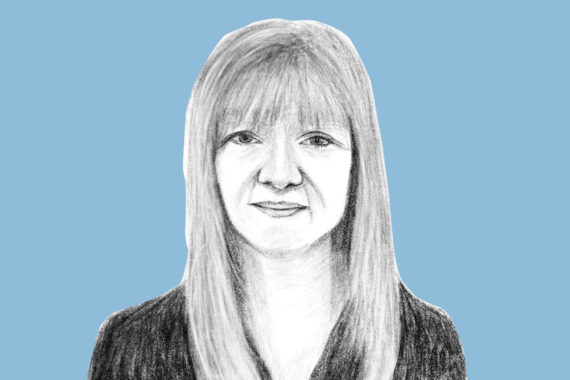Dr Zoe Rog argues that technology can only go so far in solving the GP crisis
My practice has recently made the move over to total triage, in a bid to try and manage the deluge of patient demand for appointments more effectively. We were impressed by reports from other practices that this was working well for them, and were keen to see if we could also adopt it to improve care for our own patients.
We are now two months into the journey. The system is proving popular with patients, and there is no doubt that it is more sensible and equitable in ensuring that patients who need appointments get them with the appropriate clinician at the appropriate time. The ‘on the day’ demand is no longer being diverted to the duty doctor from 9am onwards. There is also no doubt that the technology that has been developed to support this system is excellent.
However, the fact remains that we are still struggling to manage the demand. Having diverted all our available resources into getting the system off the ground, we now have the conundrum of having to fit back in all the other important work we need to do. Trying to balance the flood into the triage inbox as well as fitting in clinics for baby checks, minor surgery, coil and implant fittings, medication reviews, home visits, QOF work, supervising students, research and sparing GPs to attend meetings, currently feels like an almost impossible task.
The pushback of patients waiting interminable lengths of time for secondary care appointments, poor quality discharges from pressurised hospitals, and the grossly inadequate provision of mental health services and social care increases the flow of the demand to us all the time. We rely on many of the activities we are struggling to fit in – not just to provide a good service for our patients, but also to generate the income we need to pay for our existing staff, including our GPs.
We know that there are still things we can try to improve our lot. We can continue to tweak our system and take advice from other practices who have been doing this for longer. We can do our utmost to fight the push from our ICB to stop paying for the technology that is serving us well, in exchange for a cheaper system that, by all accounts, will not be as useful. We are a positive and energetic team, and we are not beaten or burnt out – yet.
But, the fact remains that the only thing that really helps with the workload is having enough GPs to carry it out. However we rearrange our access systems, and however clever the technology, a good proportion of patients do need an appointment with a GP. There have been many criticisms of the ARRS scheme. But – as the name suggests – even if working at its optimal level, it should be “additional” and not instead of GPs.
The data speaks for itself. The number of fully qualified whole time equivalent GPs in the UK continues to fall. The number of appointments GPs provide has increased. GP funding has seen a 7% real-terms cut since 2019. Crucially, there are now GPs out of work in the UK; in our local area, there are sessions being provided to talk to newly qualified GPs about the kinds of portfolio careers they can consider developing, if they can’t get a job with adequate sessions in general practice.
We have qualified and available GPs and plenty of work for them to do – but not enough money to pay them. The Fuller report stated that additional investment is by no means the main or only answer to the issues we need to solve. But the message from general practice is clear: additional financial investment to pay for enough GPs is essential – the only debate should be about where this investment is going to come from.
Dr Zoe Rog is a GP in Runcorn, Cheshire
















Why do you need money to pay for GPs Zoe?
It should be a privilege to work 60 hours a week for patients, and what is wrong with handing out drug-company pens and sponsored post-it notes to the doctors?
Situation reminds me of ww2 when, instead of getting the real thing, forced rationing meant having to try something else.
So, in additional roles, we had powdered egg, dripping, spam, mock goose (any others?) etc. But they just weren’t the same as the real thing!!
(personally, I like a bit of spam and dripping now and then..)
Our PCN has more money than they know what to do with, and have to invent schemes to spend it.
The problem in Primary Care is not lack of money but lack of incentives to spend it on anything useful.
Pointless bureaucracy, pointless meetings, pointless jobs, pointless “training”, employing useless pretend doctors, all attract more money; seeing patients costs money.